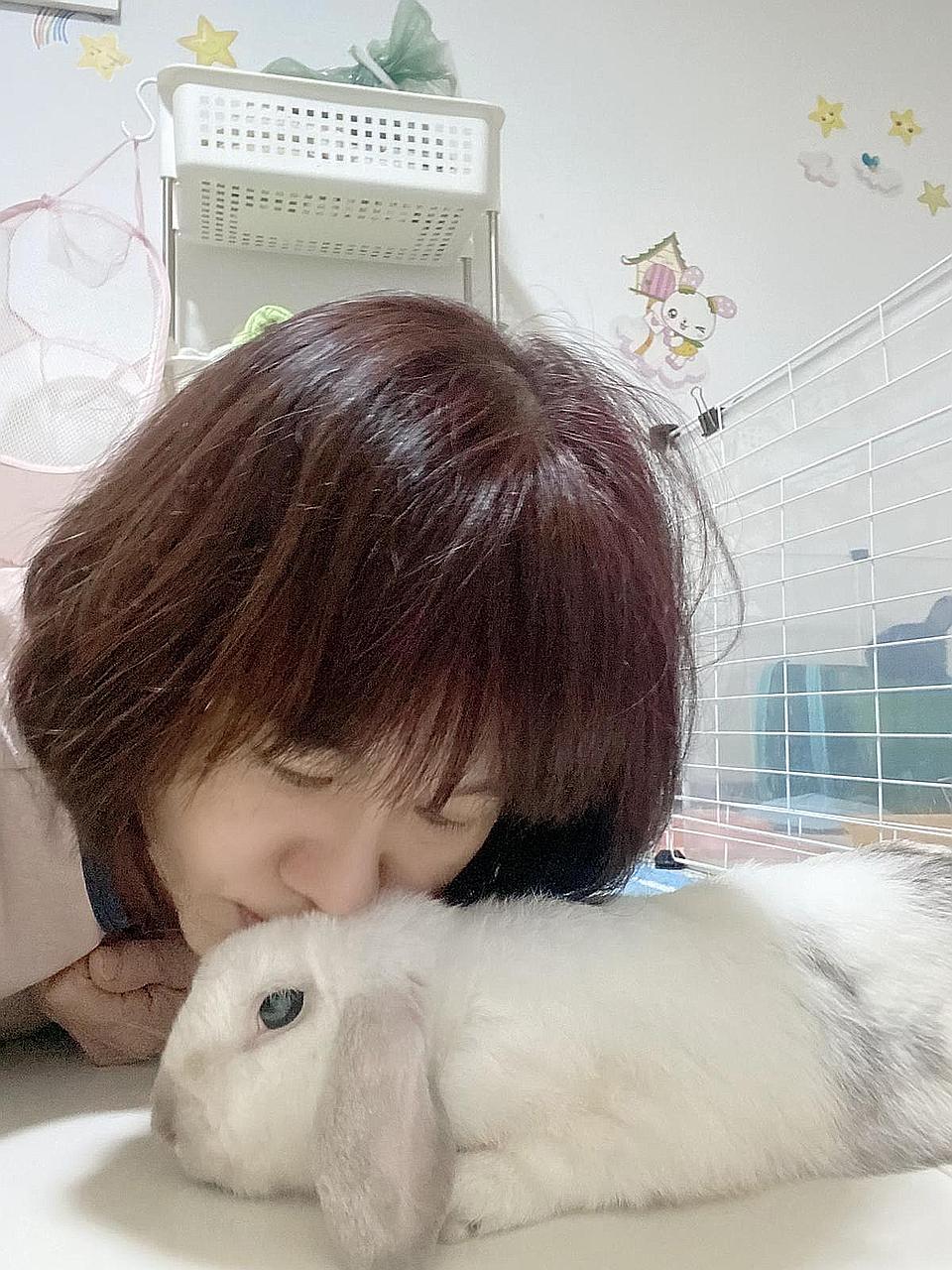Deadly disease affecting rabbits detected in S'pore
RHD is transmitted between them mainly via contact with infected fluids, fur and carcasses
Sign up now: Get ST's newsletters delivered to your inbox

A holland lop rabbit named Sorbet with Ms Sandy Goh, a pet foster parent with the House Rabbit Society Singapore. The Animal and Veterinary Service said it is investigating possible sources of the rabbit haemorrhagic disease here. The disease is not transmissible from animals to people and does not affect other animal species.
PHOTO: HOUSE RABBIT SOCIETY SINGAPORE
A highly contagious, acute and fatal disease that primarily affects rabbits was detected in Singapore on Wednesday, said the Animal and Veterinary Service (AVS).
Known as rabbit haemorrhagic disease (RHD), it is not transmissible from animals to people and does not affect other animal species, the AVS said on Thursday.
"The virus that causes RHD was detected in samples from pet rabbits submitted by a veterinary clinic.
"None of the cases is known to have a travel history," said the service, which is a cluster within the National Parks Board.
Investigations revealed that there may be up to 11 affected rabbits. Eight have died.
The AVS said it is investigating possible sources and the spread of the disease here. It will also work with veterinary clinics and distributors on getting vaccines.
While there is no specific treatment available, supportive care can be provided for infected rabbits.
RHD is endemic in Europe, Australia, New Zealand, Cuba, as well as parts of Asia and Africa.
It is transmitted between rabbits through direct contact with infected fluids, fur and carcasses. Transmission through insects and objects such as shoes, clothing and equipment has been recorded.
The incubation period of RHD is between one and five days, and death may occur within 12 to 36 hours once clinical signs develop.
Symptoms may include anorexia, dullness, prostration, nervous signs, groans and cries, or respiratory signs such as breathing difficulties or discharge from the nose.
Local rabbit owners such as student Danson Khor, 23, worry that the disease is known to be fatal.
Mr Khor owns two rabbits - an eight-year-old holland lop and a seven-year-old english angora.
"I will take every precaution possible to keep my bunnies safe, like keeping them in an air-conditioned room with insect screens," he said.
Dr Sarah Wong, a veterinarian at Mount Pleasant (East) under the Mount Pleasant Veterinary Group (MPVG), recommends that owners keep their pets indoors and minimise contact with other rabbits.
"The risk of RHD is low for rabbits housed indoors with minimal exposure to rabbits from other households," she said. "However, RHD is highly contagious among rabbits via body fluids and contaminated objects."
This means that rabbit owners may inadvertently transmit the disease to their pets if they touch an infected rabbit and, before disinfecting their hands and clothes properly, handle their own rabbit.
Consultations at MPVG's clinics are on an appointment-only basis.
Ms Jacelyn Heng, vice-president of the House Rabbit Society Singapore, said the detection of the disease in Singapore is a matter of concern and pet rabbits may have to be vaccinated in the future.
She urged all rabbit owners not to abandon their pets. "Please let your bunnies stay home to stay safe."


